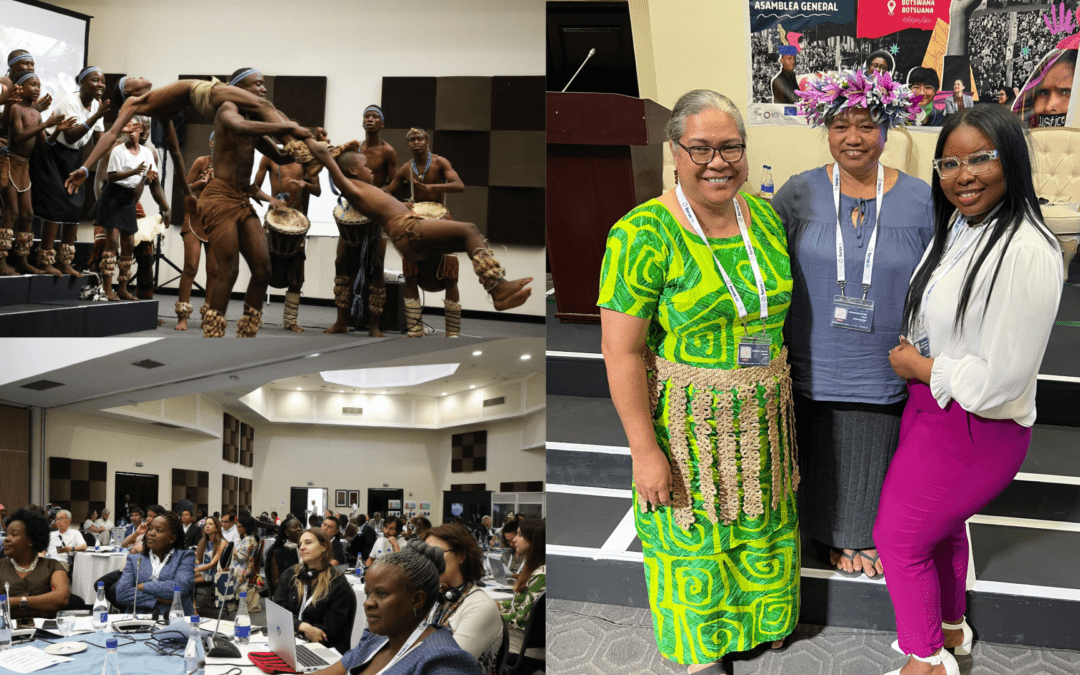From May 13th to May 17th, 2024, Cooperation Canada participated in the Forus General Assembly meetings in Gaborone, Botswana. Forus is the primary international network exclusively federating national and regional CSO networks, of which Cooperation Canada has been a member for five years. Recently, Cooperation Canada joined the Forus council, becoming one of 15 organizations tasked with shaping the strategic direction of this network, which represents over 22,000 organizations across Africa, Asia, Europe, Latin America, North America, and the Pacific.
The General Assembly brought together over 90 regional and national platform representatives to connect, collaborate, strategize together, reflect on past activities and plan for the future.
The week was dedicated to important discussions around localization, shrinking civic space, receding democracy, elections, the 2030 Agenda, digitalization and artificial intelligence, inclusive leadership, and the future of global cooperation.
In discussions on locally-led development, participants explored how Global North and Global Majority actors can collaborate to strengthen linkages and promote effective interventions. Strategies discussed to empower local organizations included enhancing leadership capacity, financial autonomy, and independence, while ensuring that CSO leaders can stand firm and dictate the terms of their partnerships rather than being mere rule takers.
On the issue of shrinking civic space, the conversation revolved around the identity crisis many civil society organizations face globally due to receding democracy, repression of rights and freedoms, and changing values. The group discussed the growing disillusionment vis à vis with democracy and electoral disenchantment worldwide and questioned the effectiveness and resilience of the current global governance system.
The collective identified several specific challenges, such as the rise of multiple concurrent crises, reductions in funding, the spread of misinformation and disinformation, and a general decline in trust in institutions.
To address these issues, the group underscored the importance of educational initiatives and the creation of reflective spaces. They highlighted the need for online pedagogical training programs in resource mobilization, digital literacy, policy engagement, crisis management, resilience-building, future preparedness, as well as robust knowledge-sharing platforms as essential tools. These initiatives were deemed crucial for equipping CSOs with the necessary skills and knowledge to navigate these challenges, improve their advocacy strategies, and ensure the sustainability of their operations.
The General Assembly concluded with a plenary session on the future of global cooperation, led by Cooperation Canada’s Research and Program Officer, Andy Ouédraogo. Andy presented the results of the Futures Initiative and facilitated a panel discussion with five leaders of regional and national CSO platforms from Africa, Asia, the Caribbean, Latin America, and the Pacific. Panelists discussed the major drivers of change and potential disruptors identified in the project and provided insights on emerging issues in their respective regions.


